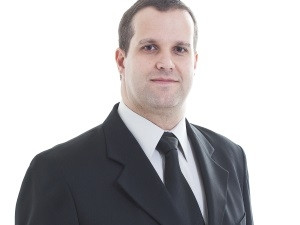Johannesburg, 24 Aug 2016

Financial services companies require custom software that speaks to the needs of their customers on a personal level to truly differentiate their businesses. This is the word from Pieter Kruger, Business Unit Head for Software Development and Integration at EOH's Microsoft division.
Kruger's department builds bespoke solutions predominantly for the financial services industry, and he says his clients' greatest business need is innovation. "The only reason to build a custom IT solution is that a suitable solution to your problem doesn't exist already. In the banking world, there are systems of record that enable banks to provide basic services, and there are non-traditional systems that give them the edge. Often, the latter takes the form of a customer-facing solution that takes a bank's interaction with clients to a different level."
Similarly, he says, the biggest business challenges financial services companies are trying to solve are around customer service. "There are 10 determinants of service quality that include efficiency, friendliness, communications and the like, but they basically all boil down to reliability: did the bank do what you asked it to do, and can you access the transaction easily? Is the bank's site down too often, and if it is after hours, is it possible to get hold of a real person?"
The second biggest issue the financial services industry faces is safety and security. Customers want to trust their financial services providers to keep their money and their information safe, Kruger says. At the same time, the financial services industry is now competing with the likes of Bitcoin, and people are starting to question whether they need a bank, and what value the bank is giving them for their monthly fees.
Traditionally, banks rely heavily on their existing trust relationships to retain customers. However, the winning banks are developing new ways to be more creative in their interactions with their customers, and this has split banks' IT departments into two groups. One technology group is responsible for the traditionally massive systems of record, without which banks can't function. The second technology group is an innovation hub that actively looks for new solutions - what Kruger calls "software that can turn their bank into the Uber of banks by changing the way customers interact with the industry". This second group is the one that develops and makes use of custom software with the assistance of EOH.
The innovation hubs face the challenge of creating an environment where it is okay if very smart people experiment and fail until they get to an answer that wows everyone, in an industry where failure is anathema. "Innovation asks you to not fire people when they miss the mark, as long as the team adds value to the organisation," Kruger says.
He believes one way to create this environment is to actively include the lines of business that have identified a specific technology requirement in designing and building the solution. "You can't delegate your passion. You need somebody who is not in IT, but has a strong passion for the value that the system will add to the business. If a business analyst from the IT department runs the project, it is an enormous struggle and the chances of success are much lower."
To boost this partnership between IT and business, EOH takes the executive teams of new clients on an "innovation boot camp", where they are exposed to project management approaches such as Lean and Agile. This, Kruger says, helps the non-IT executives to understand what is required to make innovation work, and leads to better overall results.
Along similar lines, Kruger believes once younger generations of consumers have forced the personal to be brought back into technology, businesses will improve. "Technology is very personal for young people - it is where they live their lives, not just a tool they use at work. Similarly, IT is not supposed to be the department in the basement that you send requests to electronically. IT is actually an extremely personal and deeply creative function. The divide we have between technology and business is what makes projects fail."
Share